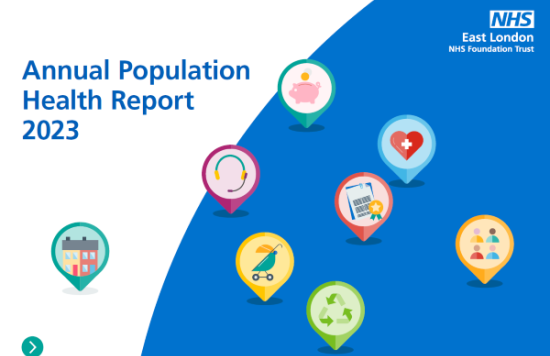It is the first report of its kind produced by a mental health, community health and primary care trust and in co-production with service users to show the work taking place across communities supported by the Trust.
The ELFT strategy commits the Trust to taking action to improving population health along with improving quality of care, staff experience and value.
The Trust believes it has a responsibility to make the communities it serves a fairer place to live and work, and to see those communities thrive.
Work on population health across services and geographies, including being an Anchor institution and a Marmot Trust, is ELFT’s way of turning this aspiration into reality.
Service users have helped produce the new report to identify case studies of good practice and areas where we have the opportunity to do more.
“Improving population health can only be achieved through true collaboration,” said Laura Austin Croft, Director of Population Health.
“This report really demonstrates a commitment to innovation and change led in equal partnership by service users, colleagues and partners across the health, social care and voluntary and community sectors in North East London (NEL) and Bedfordshire, Luton and Milton Keynes (BLMK).”
She added: “We also recognise we can’t do everything all at once. For the coming year we have chosen to focus on three key priorities: employment, income maximisation and physical health.”
Our health
We know that while access to good healthcare is important, our health is built on many factors. Having a safe place to live, enough money to be able to afford healthy food and pay bills, a good job and social networks are key elements of this.
Addressing these wider determinants of health helps build healthy communities, and at ELFT we are committed to playing our part in creating these.
This is new ground for NHS organisations, and we are only beginning our journey. The annual population health report highlights examples of our work under our six objectives. Below are the objectives and case studies for each.
